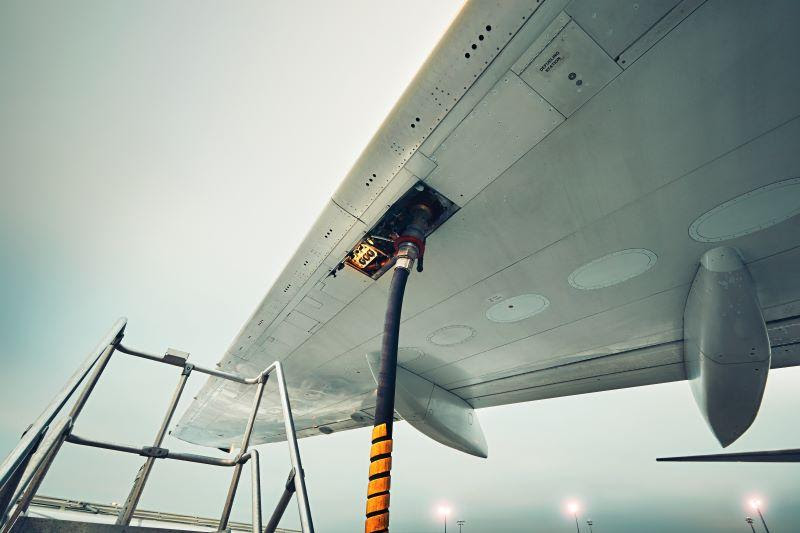I also "snagged" this from my work email. This is a bit deal, Fuel cost is the single biggest expenditure for my employer, and this is important because if fuel goes up, so will ticket prices and that can impact my employer and other airlines and this can impact the economy because the biggest most profitable group for us and any other airline are "Business Travelers". you know the ones that are always traveling for their jobs. If tickets go up too much, a lot of businesses will curtail their travels to save money and this can impact the bottom line of my employer and other airlines. What happens in Europe will come to America.


As Europe’s airlines look beyond the omicron coronavirus variant to what they hope will be a successful summer season, fuel is in focus, as jet fuel prices reach record highs.
IATA said the price for jet fuel ended last week (Jan. 28) up 2.6% at $105.7/bbl compared to the previous week. Compared to a year earlier, the price represented a huge 77.8% increase. IATA estimates the average jet fuel price for 2022 will be $102.2/bbl and puts the impact on the 2022 fuel bill at $65 billion.
Of course, after two devastating years of pandemic, rising fuel costs can be seen as a good thing for airlines. If airlines are spending more on fuel that means they are finally doing what they have been aiming to do since the beginning of the COVID-19 crisis—fly more.
European LCCs reporting quarterly results over the past few days have flagged the negative impact omicron had on their bookings, fares and yields over the peak winter season. With many travel restrictions in the region now easing, they also made upbeat noises about summer 2022.
But with jet fuel often accounting for an approximate quarter of an airline’s operating expenses, a sustained rise in jet fuel prices is still a cause for concern.
And airlines also know that looking further ahead, in the years to come, expenses related to making their fuel purchasing more sustainable are also going to have an impact on their balance sheets. The phasing out of ETS allowances as well as the cost of more expensive sustainable aviation fuel (SAF) will have an impact.
“Airlines have long had to worry about fuel costs as their largest operating expense,” Bernstein analysts wrote in a January 24 research note. “In the 2020s, European airlines will increasingly need to worry about decarbonization costs as well.”
For now, though, the price of oil is the main focus as airlines look to their fuel costs. As easyJet set out in its most recent quarterly results, the UK-based carrier is around 60% hedged for fuel in fiscal 2022 at about $504 per metric ton with the spot price on Jan. 26, 2022 at $840.
Ryanair said its fuel requirements were almost fully hedged for the fourth quarter of its fiscal 2022 (which runs to March 31), while the first half of fiscal 2023 is 80% hedged and the second half 70% hedged.
Credit Suisse analysts flagged up fuel in a research note published after Ryanair released its fiscal 2022 third quarter (Q3) results Jan. 31. Credit Suisse trimmed its estimate for Ryanair’s 2023-24 net income, “principally to reflect higher unhedged jet fuel prices at $800/mt for unhedged exposure versus $750/mt previously.” However, the analysts also noted that longer-term fuel costs, carbon costs, interest costs, debt repayments and the need to renew fleets would also be putting pressure on Ryanair’s weaker competitors, ensuring a “benign capacity environment” for the Irish LCC.
For Hungary-based LCC Wizz Air, fuel expenses increased by 263.3% to €204.3 million ($229 million) in its fiscal 2022 Q3 (end-Dec. 31, 2021) from €56.2 million in the same period a year prior. “The increase reflects operational capacity increases in terms of fuel quantity consumption to 188% and price increase of 22.9% (all inclusive),” the airline said. “The average fuel price (including hedging impact and excluding into-plane premium) paid by Wizz Air during Q3 was $718.1 per ton, an increase of 100% from $358.9 the same period in [fiscal] 2021.”
The issue of fuel is of concern to the whole industry. At a Jan. 25 press briefing, IATA Director General Willie Walsh said fuel costs were among the issues on the minds of airline management teams.
“This is something that airlines will be closely monitoring. And given what we’ve seen over the last couple of years, it’s unlikely that most airlines will have significant hedging in place to protect them against this increase in the oil price.” Walsh said. “So, I think this will be a factor certainly playing into fares as we go through the year if the oil price remains high.”
Fuel is ALWAYS the bane of existence for anything that uses fuel to move passengers...
ReplyDeleteHey Old NFO;
DeleteThat is true, usually we try to make it manageable and controllable...but the newest policies are putting artificial constraints on fuel and that makes my employer and other airlines nervous, plus the policies of "President Brandon" ain't helping.